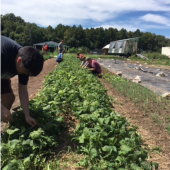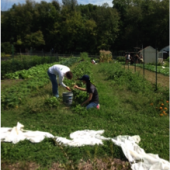
Abstract: This research explores the role that place attachment and place meaning towards an urban farm play in predicting undergraduate students’ civic-mindedness, an important factor in sustainability and social change. In 2017 and 2018, three STEM courses at a private university in the Midwest incorporated a local urban farm as a physical and conceptual context for teaching course content and sustainability concepts. Each course included a four to six-week long place-based experiential learning (PBEL) module aimed at enhancing undergraduate STEM student learning outcomes, particularly place attachment, situated sustainability meaning-making (SSMM), and civic-mindedness. End-of-course place attachment, SSMM, and civic-mindedness survey data were collected from students involved in these courses and combined with institutionally provided demographic information. Place attachment and SSMM surveys, along with the course in which the students participated, were statistically significant predictors of students’ civic-mindedness score.
Continue Reading
Abstract: Campus agriculture projects are increasingly being recognized as spaces impactful to student engagement and learning through curricular and co-curricular programming; however, most campus farm activities are limited to agriculture or sustainability programs and/or co-curricular student clubs. Thus, campus farms are largely underutilized in the undergraduate curriculum, marking a need to explore the efficacy and impact of engaging a diverse array of disciplinary courses in the rich social, environmental, and civic context of local sustainable agriculture. The Farm Hub program presented here incentivizes instructors to refocus a portion of existing course content around the topic of local, sustainable agriculture, and reduces barriers to using a campus farm as a situated learning context for curricula. A pedagogical framework founded in place-based experiential learning (PBEL) theory was developed to guide instructors in the development and implementation of 4–6-week inquiry-based PBEL modules embedded in existing courses. The framework was converted into a research protocol to quantify program implementation fidelity and PBEL best practice adherence for the proposed lesson plans (intended) and their implementation (applied). The framework enables the development of a cohesive cross-curricular program so that the impact of implementation fidelity and best practice adherence to student learning outcomes in scientific literacy, place attachment and meaning, and civic mindedness can be assessed and the results utilized to develop a formal farm-situated PBEL pedagogical taxonomy. This framework can be applied to PBEL curriculum in natural spaces beyond campus farms.
Continue Reading